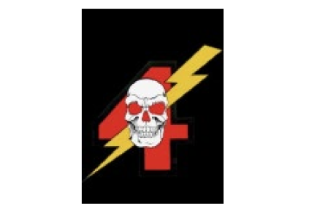Sheriff Villanueva demands L.A. County leaders stop using term ‘deputy gangs’

Los Angeles County Sheriff Alex Villanueva sent a cease-and-desist letter this week to the Board of Supervisors, demanding they and others stop using the phrase “deputy gangs” to refer to secretive groups that operate within department stations.
“This willful defamation of character has injured both individuals and the organization,” Villanueva wrote in the letter, dated Wednesday. “It also serves no purpose other than to fuel hatred and increase the probability of assault and negative confrontations against our people.”
He challenged the supervisors to name deputies “who they can prove are ‘gang members’ ” under the law. “Using this term as a blanket statement,” he wrote, “is political cowardice and opportunistic pandering.”
None of the five county supervisors provided a comment by Thursday night.
Inspector General Max Huntsman, appointed by the supervisors to provide oversight of the Sheriff’s Department, said the agency has identified deputies who have tattoos associated with the Executioners and the Banditos, groups that operate at the department’s Compton and East L.A. stations, respectively.
Huntsman said the two groups have very few, if any, Black or female deputies, which he said could mean they qualify as a law enforcement gang under a new state law banning such groups. Huntsman last month requested that Villanueva provide the names and contact information of any potential member of a “deputy gang” to aid the inspector general’s investigation into the groups.
For decades, the Los Angeles County Sheriff’s Department has struggled to combat secretive cliques of deputies who bonded over aggressive, often violent police work and branded themselves with matching tattoos.
For decades, the Sheriff’s Department has been dogged by allegations that gang-like groups of deputies have taken root in several stations, running roughshod over commanders and deploying aggressive policing tactics.
In the past, Villanueva has downplayed the issue, saying problems associated with the groups are instead often the result of drunken deputies getting into fights. But the sheriff has also taken credit for addressing the problem with a policy that prohibits deputies from joining groups that promote behavior which violates the rights of others.
In Wednesday’s letter, Villanueva claimed the use of the term “gang member” to describe deputies in these groups stems from allegations about the Executioners at Compton station made by Deputy Austreberto Gonzalez in a retaliation lawsuit that was dismissed last year. Villanueva challenged the deputy’s credibility.
“As the first fluently Spanish speaking Latino Sheriff in over a hundred years, who supervises a majority Latino workforce, I hope you can see the blatant racial inferences your conscious bias displays every time you choose to attack our Department with this derogatory term,” Villanueva wrote to the supervisors.
Alan Romero, an attorney representing Gonzalez, said Thursday that the judge refused to allow information about the Executioners into the retaliation case.
“Deputy Gonzalez retained this office to try and salvage his career due to being retaliated against by the deputy gang and its sympathizers at the highest levels in the Department,” Romero said. “Sheriff Villanueva’s playing of the race card is equally unfortunate, as many of the whistleblowers in his own department, as well as victims of the deputy gangs, are also Latino.”
Los Angeles County has paid out roughly $55 million in settlements since 1990 in civil cases involving allegations that sheriff’s deputies belonged to a secret society, records show.
The groups, often marked by their members’ matching tattoos, had been compared to or called gangs long before the Compton deputy filed his retaliation lawsuit.
A federal judge called out the problem more than 30 years ago, accusing deputies of running a “neo-Nazi, white supremacist gang” named the Vikings within the Lynwood station. Others followed, with names such as the Regulators, Grim Reapers, Rattlesnakes and the Jump Out Boys. Inside the county’s central jail, the 2000 Boys and 3000 Boys ran roughshod over the lockup’s toughest floors.
A 2020 report by the county inspector general said there’s substantial evidence that the Banditos at the East L.A. station were “gang-like and [that] their influence has resulted in favoritism, sexism, racism and violence.”
L.A. County has paid out at least $55 million in settlements in cases in which sheriff’s deputies have been alleged to belong to one of the groups, records show. The figure comes from a list of cases compiled by county attorneys.
One pending case was brought by eight deputies who allege they were routinely harassed by the Banditos, who have matching tattoos of a skeleton outfitted with a sombrero, bandolier and pistol.
Going back to 2016, the lawsuit alleges, the Banditos repeatedly refused to send backup on dangerous calls to the deputies who brought the lawsuit, pressured them to quit or leave the station and sent hostile messages on work computers. It also alleges that the Banditos once secretly removed ammunition from another deputy’s shotgun.
‘Ghost guns,’ inking parties and a decades-long struggle to crack down on cliques within the Sheriff’s Department
In September 2018, two deputies were knocked unconscious at a department party at an event space called Kennedy Hall. The lawsuit cites text messages between a group of deputies after the incident in which one jokes about the “245” at the party, referring to the penal code section for assault. In screenshots of the messages obtained by The Times, others joke about evidence, advising each other to “get rid of it” and “burn it.”
More to Read
Sign up for Essential California
The most important California stories and recommendations in your inbox every morning.
You may occasionally receive promotional content from the Los Angeles Times.












